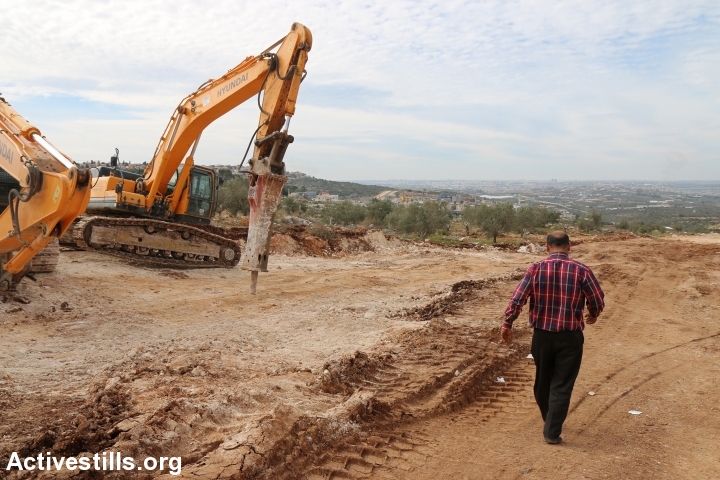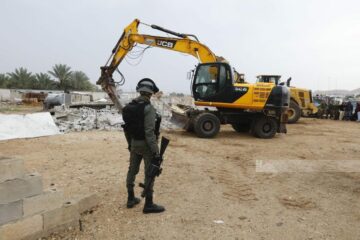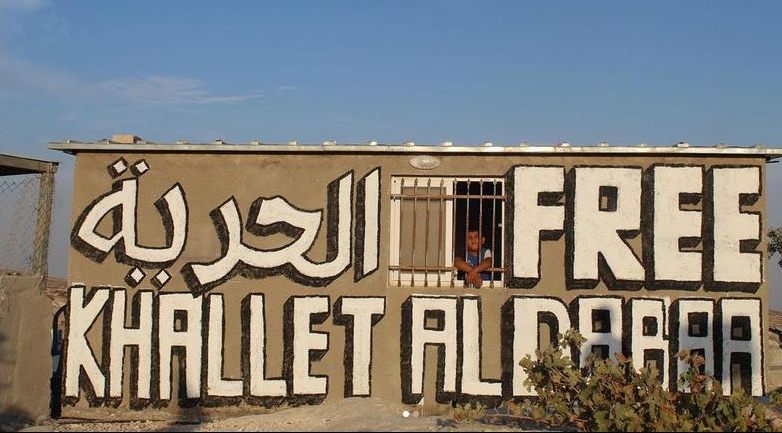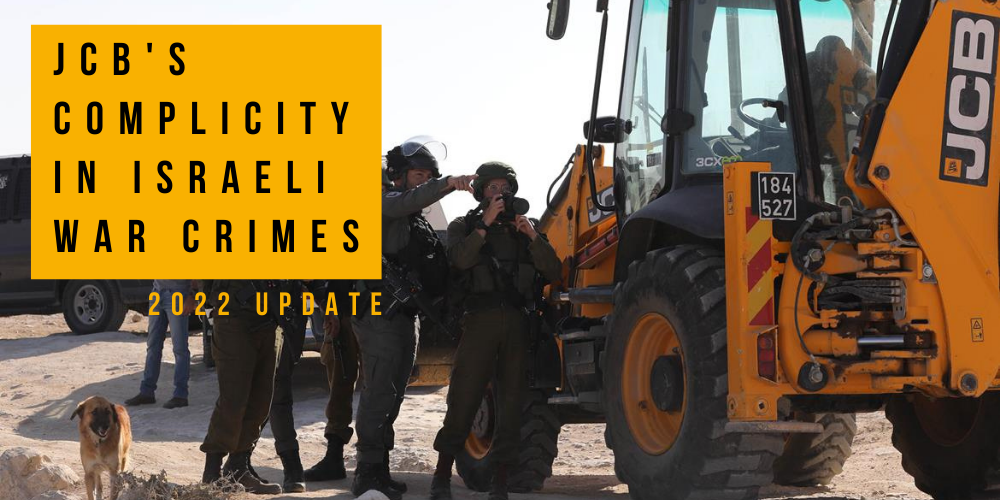By Amy Hall
This is part of a series of interviews with Palestinians in Area C who have experienced demolitions of their homes or property carried out by the Israeli occupation authorities. In our interviews we will show some of the effects of demolitions, and highlight the companies involved in carrying them out.
Layla* was nine months pregnant when her home was destroyed. “I was sleeping when the bulldozers came… I was really scared,” she explains.
“When I went outside and saw the soldiers I was really shocked. At first they didn’t let us take any personal stuff like clothes from the house… Later on they allowed some neighbours helped us to take the stuff out. I was really upset…There was nothing I could do.”
Layla lives in the community of Al Jiftlik, in the Jordan Valley, West Bank. When the soldiers came her husband Akram* was at work in another village. He says:
“They came between 6.30 to 7.00am. A friend called me and said ‘the soldiers are in your house’, but he didn’t tell me why. I called my father and asked what happened. My father said that they were going to destroy the house. I was worried about Layla because she was so pregnant.”
Their daughter is four months old when we meet the family.
“The military were shouting at Layla,” explains Naima*, Akram’s mother. “I helped her to go outside. The workers started throwing the mattresses out. We tried taking them, but they didn’t want us to and they shouted at us.”
When Akram arrived back in Al Jiftlik he found the area around his house had been closed off by the authorities. “I was 200 metres from the house and they wouldn’t let me enter. I told them, ‘I have to go to my house’, they said, ‘there’s no house’.”
The family shows us photos of the Hyundai vehicle that was used to carry out the demolition. Equipment manufactured by Hyundai is used in many of Israel’s demolitions. Palestinians have made calls to boycott and divest from the company until it ends its involvement in Israel’s violations of human rights.
The video shows a recent demolition, involving Hyundai machinery, in East Jerusalem
There had been ten people living in the house at the time. It was actually the house of Akram’s parents and both he and Layla had been staying with them since their own family home had been destroyed by the Israeli occupation authorities in November 2017. They had only been living in that house for a year and a half before it was demolished. It had taken them two years to build.
“We don’t feel safe here any more,” says Naima. “Yesterday the Israeli Civil Administration came in a car and stopped next to the house where we are living now. They were looking for any new structures that we were building.”
The family have been given two shipping containers by NGOs and the European Union – they aren’t yet suitable to live in and the family has been making alterations to them, with the help of local solidarity activists.
“The Israelis don’t want us to be in this country,” says Akram. “We asked for permission to build the house but they never give it. They would like to kick all the Palestinians out.”

Hyundai vehicles work on a new settler road, Nabi Elias, West Bank, 4.2.2017. Photo by ActiveStills
Al-Jiftlik is 33 kilometres north of Jericho. It is in Area C, like almost 90% of the Jordan Valley. Being designated as Area C means that Al-Jiftlik is under full Israeli control. Palestinians who have lived in the Jordan Valley for generations have to apply for permission from the Israelis for any building work, which is almost never granted.
Isa*, Akram’s 84 year-old grandfather, tells Corporate Occupation about the struggles he has had against the occupation over the decades. His family have lived and farmed in the Jordan Valley for generations – since before Israel occupied.
“After [the military occupation of the Jordan Valley in] 1967 the Israeli soldiers shot our sheep in the animal house. Later on they even started to use a helicopter and wherever they saw our sheep they would shoot at them. I spent four years protecting my goats and sheep. I had to take the sheep out to the mountain to eat at night: the opposite of what’s natural for them.
I was allowed to go to the farm from 6.00am-6.00pm. When it was 6pm the soldiers would shout telling me to go back home. When I was walking back they would shoot next to me to scare me.
Now we see the military twice a week, mostly if there is some problem, an army exercise or if they’re going to destroy houses. If they leave us alone here it’s good.”
* We have not used the family’s real names, or any photos, because of safety concerns. This interview was carried out in April 2018.
Many thanks to Eliza Egret, Lydia Noon and Tom Anderson for their help with the interview.
The main feature photo to this article shows a house demolition using Hyundai machine in Palestinian village of Dahamash, Israel, May 2015. By Hiba Dahamash. Published under a CC license.



0 Comments